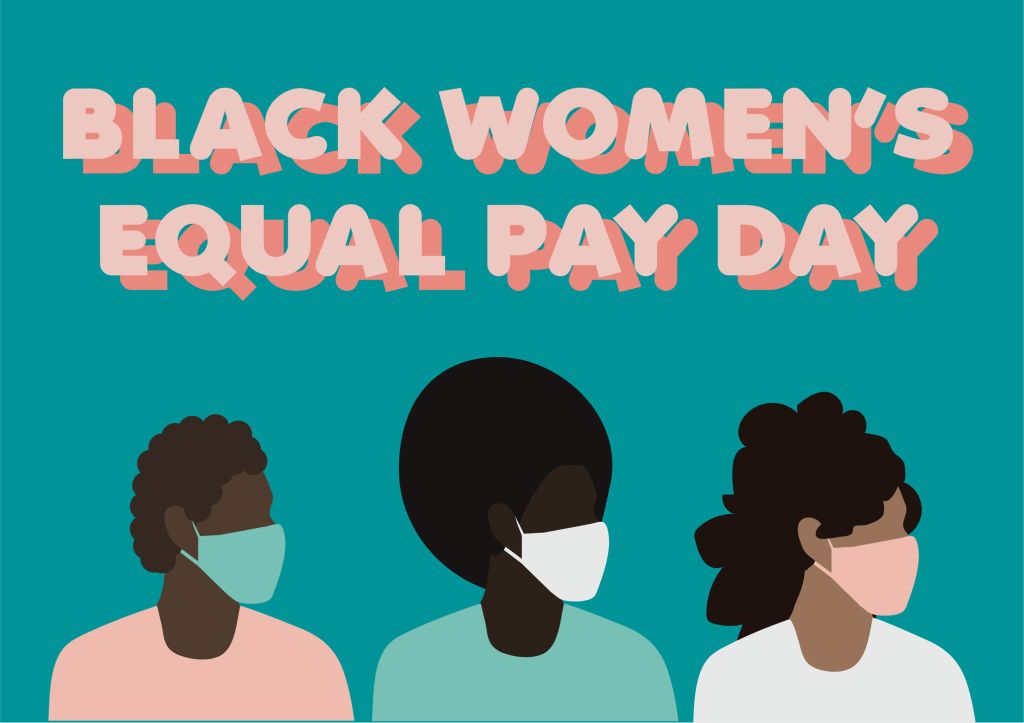Equal Pay Day? Black Women’s Wages By The Numbers
Source: Jessica Girvan / Getty
Thursday marks Black Women’s Equal Pay Day, a significant commemoration dedicated to raising awareness about the persistent gender and racial wage gap experienced by Black women in the United States. On this day, and every other day, we reflect on the many challenges faced by Black women in the workforce and reiterate the urgent need for change and action to achieve fair and equitable wages.
The wage gap statistics speak volumes about the economic inequality that Black women continue to endure. Based on Census data from 2022, Black women earn 67 cents for every dollar earned by non-Hispanic white men in full-time, year-round positions.
On average, Black women were paid 64% of what non-Hispanic white men earned in 2021, according to AAUW.
Today, on Black Women’s Equal Pay Day, we continue to fight for equal pay for equal work. This day marks how long it takes for a Black woman to make as much as their White male co-workers for the same work in the previous year. pic.twitter.com/IFv8tK1Gb8
— Rep. Arvind Venkat (@RepVenkat) July 27, 2023
The roots of this pay gap are deeply intertwined with historic systemic racism and sexism. This has shaped the nation’s economy, laws and policies for centuries. Black women have been subjected to pay discrimination and occupational segregation, leaving them in undervalued and low-paid jobs.
Contrary to the “American dream” narrative of upward mobility through education, Black women experience a wage gap at every education level. Even when they hold professional or graduate degrees, the pay is still lower. This is just one of several factors contributing to gender wage gap.
Factors Contributing to the Wage Gap
Black women face a compounded effect of sexism and racism, often limiting their access to educational opportunities and career advancements. The historic injustices faced by Black families, such as slavery, segregation and discriminatory practices, have also resulted in a significant wealth gap.
The typical Black household has only 12.7% of the wealth of the typical white household.
For Black women, the number of degrees they have is irrelevant. Why? Because education does not shield women of color from the pay gap. Black women are more likely to rely on federal student loans, according to AAWU. That makes it harder to repay their loans due to the combined effects of the gender wage gap and racial wealth gap.
Calls to Action
In light of the data presented, it is important to advocate for change and support policies that promote fair and equitable wages for Black women. Here are some calls to action on this year’s Black Women’s Equal Pay Day.
Passing the Paycheck Fairness Act: Federal lawmakers are urged to quickly pass this legislation, which aims to modernize and strengthen the Equal Pay Act of 1963 by combating pay discrimination and closing the wage gap.
Ensuring Quality Jobs for Black Women: This would engage governors and state officials to ensure that historic infrastructure investments lead to better and higher-paid jobs for Black women, addressing occupational segregation and promoting economic growth.
YWCANNJ is calling on our Congress to pass the Paycheck Fairness Act. It is past time for Congress to pass the Paycheck Fairness Act. For more information on the wage gap in your state, visit https://t.co/GIYHMK2dOn#BlackWomenCantWait #BlackWomensEqualPayDay pic.twitter.com/omDTZMzjxi
— YWCA Northern New Jersey (@ywcannj) July 27, 2023
The persistent gender and racial wage gaps faced by Black women demand immediate attention and policy changes. Paying equally among all genders and races shouldn’t be that difficult.
SEE ALSO:
Where Black Women Rank On The Equal Pay Totem Pole, In 5 Depressing Charts
The One Story: Closing Black Women’s Equal Pay Gap
The post Equal Pay Day? Black Women’s Wages By The Numbers appeared first on NewsOne.

